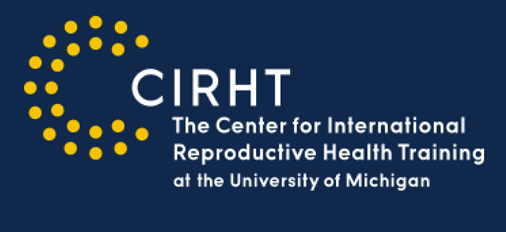Speakers
Description
Introduction: People with disabilities in Ethiopia experience socioeconomic disadvantages and obtain limited information and services related to reproductive and sexual health. There is currently little information about access to information regarding the current abortion law among disabled people in Ethiopia. This study evaluated awareness and attitudes of disabled reproductive age women concerning the present abortion law and its associated factors in Gedeo zone of southern Ethiopia.
Objective: To determine knowledge and attitude of reproductive age women with disabilities towards current abortion law and associated factors in Gedeo zone southern Ethiopia 2023 G.C.
Method: A community-based cross-sectional study was carryout in Gedeo zone from April to June 2024. Women in reproductive age groups (15-49) with disability who lived in the Districts for more than 6 months were included in the study. By using a single population proportion formula, the final sample size is 605 obtained. Districts were selected by using lottery method. The samples were proportionally allocated for each selected district. Data was collected by a structured pre-tested tool after having both written and verbal consent. Binary and multiple logistic analyses was carried out to identify factors associated with knowledge & and attitude toward the Ethiopian abortion law.
Result: Out of 605 reproductive age women with disability expected to participate in this study, a total of 605 were interviewed and making the response rate 100%. Regarding their knowledge level, considering 7 knowledge, assessing questions, 15.4% had a good knowledge about the Ethiopian current abortion law. Taking 11 attitude assessing questions into consideration, the composite score of respondents having a favourable attitude to Ethiopian current abortion law was about 48.8%. Educational status of the respondent (AOR=1 95%CI:1-3), discussion with family member on SRH issues (AOR=0.05 95%CI: 0.008-0.3), knowledge on unsafe abortion complications (AOR=0.1 95%CI: 0.02-0.4) were factors associated with knowledge on Ethiopian abortion law. Educational status of the respondent(AOR=0.5 95%CI:0.3-0.9), marital status(AOR=0.6 95%CI:0.3-0.9), history of pregnancy(AOR=3 95%CI:1.1-6), knowledge on unsafe abortion complication(AOR=0.1 95%CI:0.07-0.2), membership to any disability association(AOR=0.1 95%CI:0.08-0.2), SRH service utilization(AOR=0.4 95%CI:0.2-0.9), were associated to attitude towards Ethiopian abortion law,
Conclusion: We conclude that the key risk factors for knowledge and attitude towards abortion law among reproductive age women’s with disability in Gedio Zone, are educational status, discussion with family members on SRH issues, marital status, history of pregnancy, knowledge on unsafe abortion complication, membership to any disability association, SRH service utilization. These findings highlight the need for policies that improve access to reproductive health services,promote family planning and address the socio-economic challenges reproductive womens with disablity face in this context.
Key word- abortion, disability, knowledge, attitude, southern Ethiopia.


